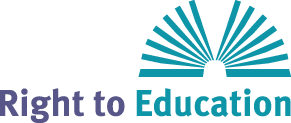'RTE welcomes the Tashkent Declaration’s call for an enhanced legal framework and increased public expenditure for ECCE' was written by RTE following the adoption of the ‘Tashkent Declaration and Commitments to Action for Transforming Early Childhood Care and Education at the UNESCO World Conference on Early Childhood Care and Education.
This statement summarises the most significant aspects of the Tashkent Declaration and our perspectives on the importance of this document for the protection of young children's ECCE rights.
Ce document de recherche et d’orientation étudie certains aspects du droit à l'éducation qui pourraient nécessiter un ancrage plus solide dans le cadre normatif international et une expansion potentielle pour le 21st siècle. L'éducation numérique, la mobilité croissante des personnes, l'évolution démographique, le changement climatique et les attentes en matière de possibilités d'apprentissage tout au long de la vie ne sont que quelques-uns des domaines qui mettent à l'épreuve les limites du cadre normatif international existant. Aboutissement d'un cycle de consultations ouvertes, de séminaires et d'événements internationaux, ainsi que de recherches, ce document présente quelques-unes des tendances émergentes, des défis et des normes qui ont été discutés.
This policy-oriented research paper investigates some of the aspects of the right to education that might require a stronger footing in the international normative framework and potential expansion for the 21st century. Digital education, increasing human mobility, changing demographics, climate change, and expectations of opportunities for learning throughout life are just a few of the areas that are testing the limits of the existing international normative framework. The culmination of a round of open consultation processes, as well as international seminars and events, and research, this paper presents some of the emerging trends, challenges, and norms that have been discussed.
